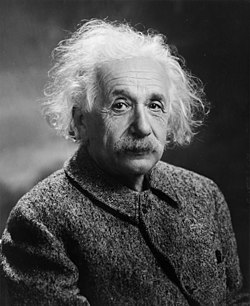Vital articles are lists of subjects for which the English Wikipedia should have corresponding featured-class articles . They serve as centralized watchlists to track the quality status of Wikipedia's most important articles and to give editors guidance on which articles to prioritize for improvement. The most important articles are in Level 1.
This portal is tailored to the English-language Wikipedia. There is also a list of one thousand articles considered vital to Wikipedias of all languages, as well as Vital Article lists tailored to different Wikipedia languages accessible via the languages sidebar.
🜨 and
Earth planet from the Sun and the only astronomical object known to harbor life . This is enabled by Earth being an ocean world , the only one in the Solar System sustaining liquid surface water . Almost all of Earth's water is contained in its global ocean, covering 70.8% of Earth's crust . The remaining 29.2% of Earth's crust is land, most of which is located in the form of continental landmasses within Earth's land hemisphere . Most of Earth's land is at least somewhat humid and covered by vegetation, while large sheets of ice at Earth's polar deserts retain more water than Earth's groundwater , lakes, rivers, and atmospheric water combined. Earth's crust consists of slowly moving tectonic plates , which interact to produce mountain ranges, volcanoes , and earthquakes. Earth has a liquid outer core that generates a magnetosphere capable of deflecting most of the destructive solar winds and cosmic radiation . (Full article...
For editor resources and to collaborate with other editors on improving Wikipedia's Vital Articles, visit WikiProject Vital Articles Finish building out Vital article Level 5 list
Make it easier for readers to access the list (better separate reader-focused and editor-focused pages)
Integrate random vital article tool somewhere (main page? sidebar?) for readers
Collaborate with other WikiProjects to focus attention on poor-quality high-level articles
Better integrate VA with the project-specific importance lists
Develop tools for helping identify VA candidates (one attempt: most-viewed unlisted articles )
clean-up listing for Vital_Articles
Birds warm-blooded vertebrates constituting the class Aves (Latin: [ˈaːwεs] feathers , toothless beaked jaws, the laying of hard-shelled eggs, a high metabolic rate, a four-chambered heart , and a strong yet lightweight skeleton . Birds live worldwide and range in size from the 5.5 cm (2.2 in) bee hummingbird to the 2.8 m (9 ft 2 in) common ostrich . There are over 11,000 living species and they are split into 44 orders . More than half are passerine or "perching" birds. Birds have wings whose development varies according to species; the only known groups without wings are the extinct moa and elephant birds . Wings, which are modified forelimbs , gave birds the ability to fly, although further evolution has led to the loss of flight in some birds , including ratites , penguins , and diverse endemic island species. The digestive and respiratory systems of birds are also uniquely adapted for flight. Some bird species of aquatic environments, particularly seabirds and some waterbirds , have further evolved for swimming. The study of birds is called ornithology . (Full article...
A selection of most-visited articles from the list of popular pages
Image 2 YouTube search results, May 2025
YouTube is an American
social media and
online video sharing platform owned by
Google . YouTube was founded on February 14, 2005, by
Steve Chen ,
Chad Hurley , and
Jawed Karim , three former employees of
PayPal . Headquartered in
San Bruno, California , it is the
second-most-visited website in the world, after
Google Search . In January 2024, YouTube had more than 2.7
billion
monthly active users , who collectively watched more than one
billion hours of videos every day. As of May 2019
[update] , videos were being uploaded to the platform at a rate of more than 500 hours of
content per minute, and as of mid-2024
[update] , there were approximately 14.8
billion videos in total. (
Full article... )
Image 4 Google LLC (,
GOO -gəl) is an American
multinational corporation and
technology company focusing on
online advertising ,
search engine technology,
cloud computing , computer
software ,
quantum computing ,
e-commerce ,
consumer electronics , and
artificial intelligence (AI). It has been referred to as "the most powerful company in the world" by the
BBC and is one of the world's
most valuable brands . Alongside
Amazon ,
Apple ,
Meta , and
Microsoft , Google's parent company,
Alphabet Inc. is one of the five
Big Tech companies. (
Full article... )
Image 5 India , officially the
Republic of India , is a country in
South Asia . It is the
seventh-largest country by area ; the
most populous country since 2023; and since its independence in 1947, the world's most populous democracy. Bounded by the
Indian Ocean on the south, the
Arabian Sea on the southwest, and the
Bay of Bengal on the southeast, it shares land borders with
Pakistan to the west;
China ,
Nepal , and
Bhutan to the north; and
Bangladesh and
Myanmar to the east. In the Indian Ocean, India is near
Sri Lanka and the
Maldives ; its
Andaman and Nicobar Islands share a maritime border with
Thailand , Myanmar, and
Indonesia . (
Full article... )
Image 7 World War II or the
Second World War (1 September 1939 – 2 September 1945) was a
global conflict between two coalitions: the
Allies and the
Axis powers .
Nearly all of the world's countries participated, with many nations mobilising all resources in pursuit of
total war .
Tanks and
aircraft played major roles , enabling the
strategic bombing of cities and delivery of the
first and only nuclear weapons ever used in war. World War II was the
deadliest conflict in history, resulting in
70 to 85 million deaths , more than half of which were civilians. Millions died in genocides, including
the Holocaust , and by massacres, starvation, and disease. After the Allied victory,
Germany ,
Austria ,
Japan , and
Korea were occupied, and German and Japanese leaders were tried for
war crimes . (
Full article... )
Image 8 The
United Kingdom of Great Britain and Northern Ireland , commonly known as the
United Kingdom (
UK ) or
Britain , is a country in
Northwestern Europe , off the coast of
the continental mainland . It comprises
England ,
Scotland ,
Wales and
Northern Ireland . The UK includes the island of
Great Britain , the north-eastern part of the island of
Ireland , and most of
the smaller islands within the
British Isles , covering 94,354 square miles (244,376 km
2 ). Northern Ireland shares
a land border with the
Republic of Ireland ; otherwise, the UK is surrounded by the
Atlantic Ocean , the
North Sea , the
English Channel , the
Celtic Sea and the
Irish Sea . It maintains sovereignty over the
British Overseas Territories , which are located across various oceans and seas globally. The UK had an estimated population of over 68.2 million people in 2023. The capital and largest city of both England and the UK is
London . The cities of
Edinburgh ,
Cardiff and
Belfast are the national capitals of Scotland, Wales and Northern Ireland. (
Full article... )
Select [►] to view subcategories.
Top 1,000
People Geography Humanities Society Biological Sciences
User-suggested
SethAllen623's vital articles
Published lists Other article lists
Purge server cache



































